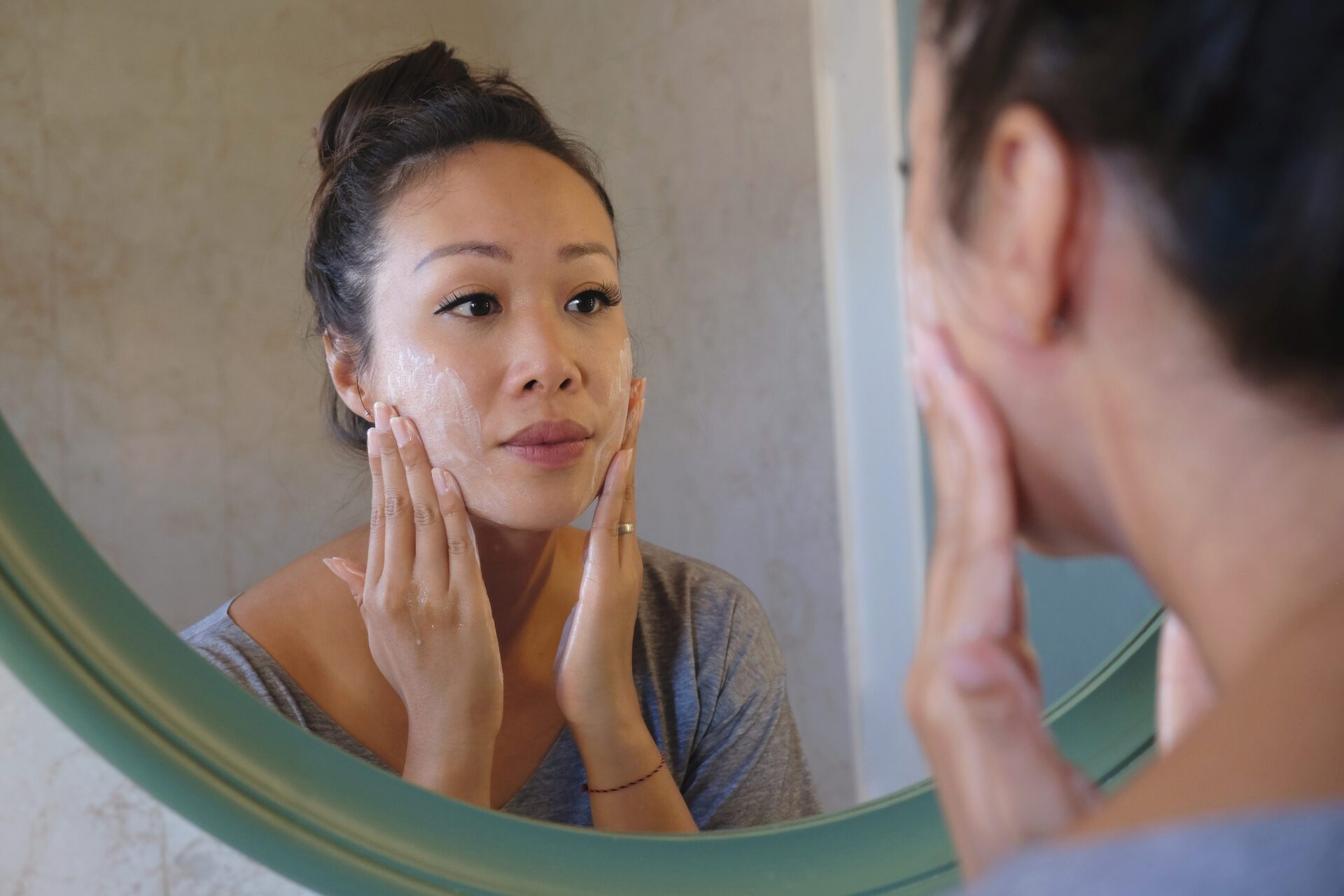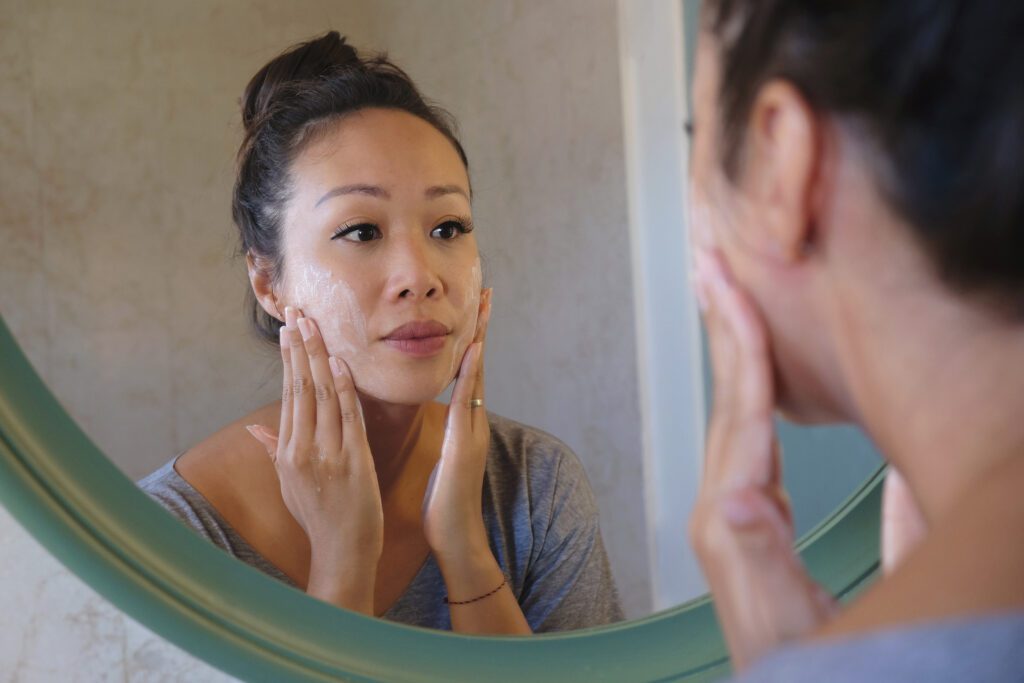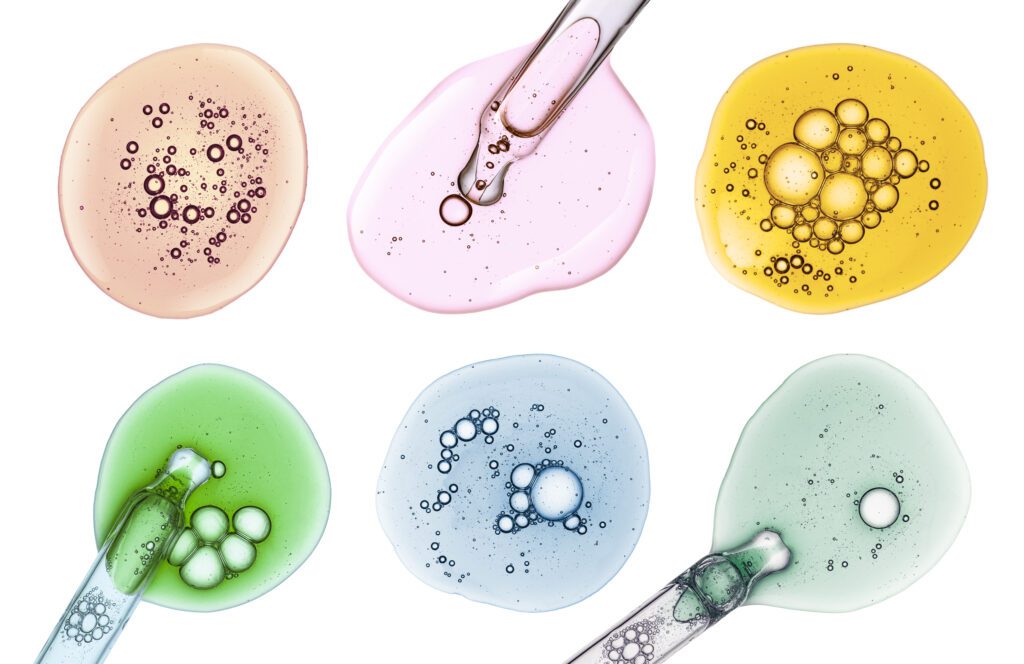
Are you concerned about the chemicals in your skincare products? With an industry estimated to be worth around USD100 billion in 2021, it's clear that many of us invest time and money in skincare. However, as we slather on creams, lotions, and serums, we may not be fully aware of what we're putting on our skin—and the potential side-effects the ingredients may cause. If you’d like to take a closer look at the active ingredients commonly found in skincare products, read on.

Active ingredients are the backbone of many skincare products, with each ingredient serving a specific purpose. For example, salicylic acid is often used to treat acne, while hyaluronic acid can help to hydrate and plump the skin. These ingredients can be naturally derived from plants or chemically synthesised in a lab, and they can vary in potency and effectiveness depending on the formulation. Some products may contain a single active ingredient, while others may contain a blend of several. As consumers, it's important to understand what these ingredients do and how they interact with our skin to ensure that we're getting the most benefit from our skincare products.
Glycerin, also known as glycerol, is a natural humectant, meaning it has the ability to attract moisture from the environment and hold it in the skin. In skin care, glycerin is used as a moisturising agent because of its ability to pull moisture from the air and into the skin. This helps to prevent dryness and flakiness and can make the skin appear more plump and youthful. Glycerin is also used in skin care products as a thickening agent and as a solvent to help dissolve other ingredients.

Many products promote the presence of acids as part of a complete skincare regimen, often as serums and toners. It can be easy to get lost in the many ingredients and initialisations, so we’ll break some down for you here.
AHA, or alpha hydroxy acids, is a category of chemicals which include citric acid, glycolic acid, and lactic acid. They are primarily used to exfoliate the skin, removing dead skin cells and promoting new growth. Exfoliation helps to brighten skin and promote protein-rich collagen production, ensuring skin remains elastic and smooth.
BHA, or beta hydroxy acids, is another category of exfoliating agents—the most recognisable of which is salicylic acid. BHAs are said to reduce the appearance of lines and wrinkles, smoothing the skin and brightening, without some of the irritation found with AHAs.
HA, or hyaluronic acid, is a humectant with properties similar to glycerin. Hyaluronic acid can bind up to 1000 times its weight in water and holds all of that water against the skin to prevent dehydration. It can also be used to help speed up the healing of wounds on your skin.
Vitamins are molecules which your body cannot produce, yet are essential for cellular function, and this includes the cells in your skin.
Vitamin E is a widely used category of antioxidants, allowing the body to better protect itself from free radicals. It also has been shown to provide hydration and anti-inflammatory properties.
Vitamin D, as both a nutrient and a hormone, stimulates the immune system to protect the skin and promote differentiation of new cells. It also helps to calm inflammation, reduce puffiness, and provide some relief from skin conditions such as psoriasis.
Vitamin C is an essential antioxidant, protecting your skin cells from free radicals and oxidation which can damage proteins and DNA within cells to cause premature ageing.
Vitamin A (including retinol and carotenoids) regulate cell growth and stimulates white blood cells.
Adequate hydration is important for every cell in your body, and your skin cells are no exception. When skin is adequately hydrated, it is more plump, elastic, and able to maintain its natural barrier function. This helps to prevent the loss of moisture from the skin, which can lead to dryness, cracking, and itching.
Skin needs to stay hydrated because it is the body's first line of defence against the environment and plays a crucial role in regulating body temperature, protecting the body from harmful microorganisms, and preventing dehydration.
Many chemicals are not safe to be inhaled, consumed, or applied to skin. To avoid accidental consumption, mishandling and misidentification, chemicals should be accurately labelled, tracked, and stored. For assistance with this, and chemical and hazardous material handling, SDS, labels, Risk Assessment, and heat mapping, contact us today!
Sources:
https://cosmosmagazine.com/news/science-behind-skincare-ingredients/
https://www.healthline.com/health/glycerin-for-face
https://www.sciencedirect.com/science/article/abs/pii/S0899900701006608
https://www.healthline.com/health/beauty-skin-care/alpha-hydroxy-acid
https://www.fda.gov/cosmetics/cosmetic-ingredients/beta-hydroxy-acids https://www.vogue.in/beauty/content/6-vitamins-you-need-in-your-skincare-products-for-a-healthy-glow